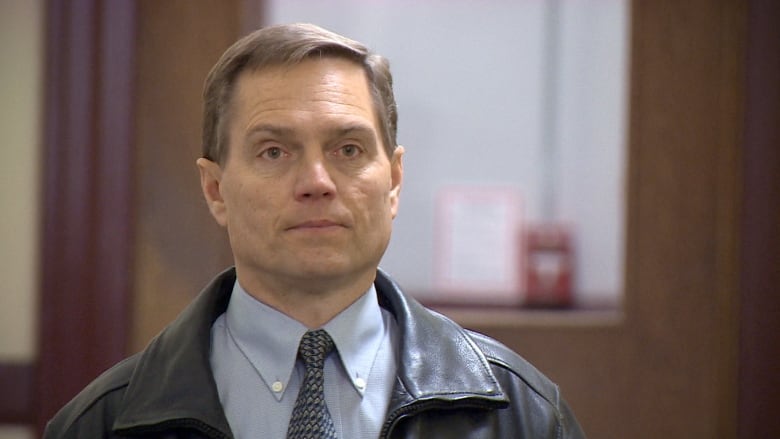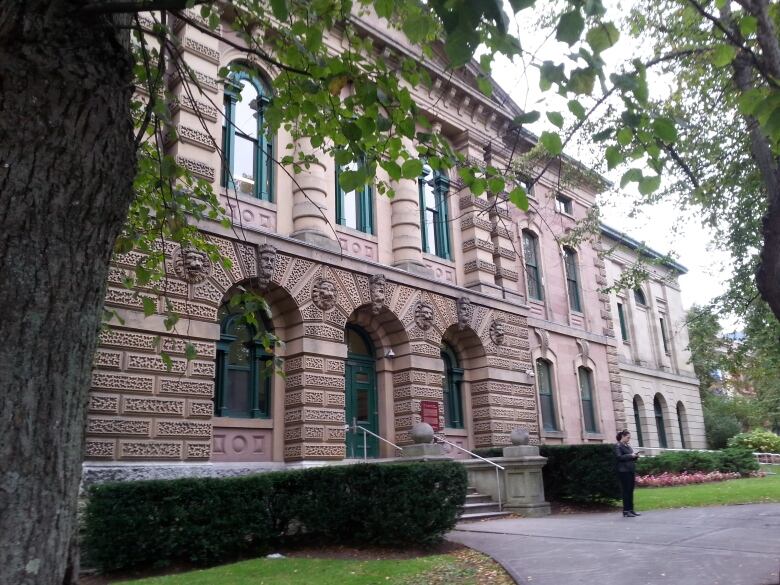Convicted N.S. investment fraudster could face prison over $1M unpaid fine
Quintin Sponagle pleaded guilty in 2016 to fraud involving 200 victims

A former financial managerfrom Nova Scotia who pleaded guilty tofraud in an investment scam involving more than 200 victims could face five years in prison for failing to pay a fine of more than $1 million.
Quintin Sponagle, 59, appeared in Halifax provincial court Monday for a hearing to determine whether he has the ability to pay the court-ordered fine related to his 2017 sentencing, and whether he is refusing to do so.
Sponagle said in an interview outside the courtroom he intends to "prove poverty" in the case, even as he maintained he still wants to eventually pay back clients who lost money through his investment firm.
"It's been a very difficult run for a number of years," he said of his financial situation.
The Upper Vaughn, N.S., manpleaded guilty sevenyears ago to one count of fraud involving 201 victims, many of them fromSponagle's social circle,whoinvested $4.4 million in a company he controlledthatwas incorporated in Panama and maintained an office in Windsor, N.S.
The Nova Scotia Securities Commission and RCMP began investigating in 2006 following complaints from some investors. An analysis found $1.1 million had not been funnelled into investments, but was instead spent by Sponagle on vehicles, RVs, property, international travel, personal expenses and other payments.
Regulators from the securities commission revealed in a 2011 hearing thatSponagle and abusiness associate recruited investors from church groups, including the Rock Church in Lower Sackville, N.S.
Panama prison
At sentencing in 2017, a Nova Scotia judge took into account nearly 20 months Sponagle spent in Panama's La Joya Penitentiary a prison with"cruel, inhumane and degrading conditions" while he unsuccessfully fought his extradition to Canada.
Sponagle was handed one year of probation and a $1.1-million fine. But if he did not pay the money in five years, he faced five years in prison. That timeframe has now elapsed, and Sponagle has only paid $10,000.
Prosecutor Shauna MacDonald said Monday outside the courtroom that in order for Sponagle to be put behind bars, the Crown must prove he has the ability to pay but is refusing to do so.
Sponagle has indicated he plans to testify when the hearing resumes next week.
"He's consistently maintained up until today that he has had the ability to pay," MacDonald said. "We'll have to hear more from him next time."
Wife testifies
On Monday, Sponagle's wife of 38 years, Shelley Sponagle, testified she has earned only a small amount of income in recent years, and now works as a housecleaner. Her husband, she said, does renovation work for a man in Hantsport, N.S.
She testified her husband handles some of the bills, but said she didn't know how much money he earns, the full name of the person he works for, or how he is paid.
She said there is still an amount owing on the mortgage of the home the couple owns in Upper Vaughan, and there are two vehicles under her name, although one is broken down. She has no investments or money for retirement, she said.
"I'm just trusting in God for my future," she said.

She also defended her husband, telling the court he's been the victim of "fake news." She said he believed in the investments he was making, and that his intention was to help people.
"His motive was never to take people's money," she said.
Quintin Sponagle said outside the courtroom that he is "innocent" of the charge of fraud, and that he only agreed to plead guilty in late 2016 because his family and clients were "being pestered very badly" by authorities.
He said he wants to pay clients back, and has been "working on things in the background that have not panned out yet."












_(720p).jpg)


 OFFICIAL HD MUSIC VIDEO.jpg)
.jpg)



























































































